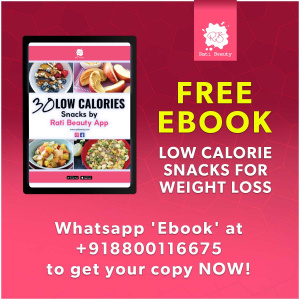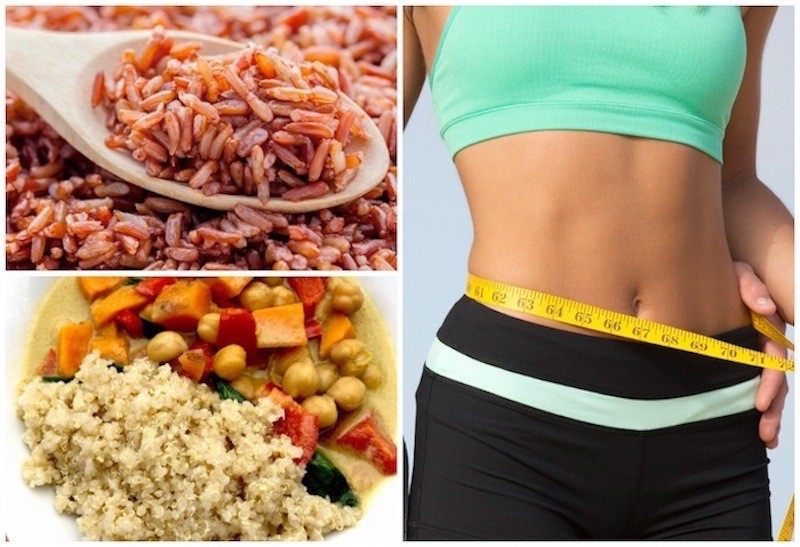
How To Lose Weight as a Vegetarian | Makeupandbeauty.com
There’s a huge misconception that losing weight is a tad bit difficult for vegetarians compared to non-vegetarians who have endless food sources to get their protein from. Now, as we all know by now, protein is the superstar macronutrient that motors up fat burning, and vegetarians usually feel there are only just a few options for them out there to choose from. Also, overindulgence in carb-rich food among vegetarians is another major concern. Nowadays, there’s also a steady rise in consumption of processed food both among vegetarians and non-vegetarians as well. Considering so many factors working against those on a plant-based and vegetarian diet, a lot of us might conclude that it might indeed be not that easy for herbivores. But make no mistake, what actually triggers fat burning is being in calorie deficit (consuming fewer calories than your body burns) and make sure to follow a nutrient-dense diet. So, here’s a detailed guide on how to lose weight as a vegetarian.

1. Get High-Quality Protein from These Plant-Based Sources: Now, People are often advised to amp up their protein content when trying to lose weight and that’s because protein keeps appetite in check, burns more calories, boosts metabolism, and above all, keeps you full for longer so that you can consume fewer calories through the day. Chicken, fish, eggs, etc. are considered amazing sources of protein, but they are all non-vegetarian sources. And the biggest concern of people who are vegetarians – “how do I get enough protein?” if I am trying to lose weight? Worry not, there are equally good plant-based protein sources that would help you trim the waistline and shed extra pounds. Paneer and yogurt have good protein content, but if you are particularly looking for plant-based protein sources, tofu, chickpeas, beans, lentils, peanut butter, green peas, pumpkin seeds, almonds, quinoa, chia seeds, and even oats are good sources.
2. Cut Down on the Quantity of Cooking Oil: It does not even matter whether you are vegetarian or a non vegetarian, keeping tabs on the amount of cooking oil you use to prepare each dish matters. Sunflower oil, vegetable oil, ghee, coconut oil, and even olive oil are calorie dense and not having a control over the quantity can lead to weight gain. And that means – no deeply-fried food stuff while trying to lose weight.
3. Fill Half Plate with Veggies: Most veggies are extremely low in calories but they are extremely filling. They nourish the body with vitamins, antioxidants, fiber, protein, minerals, necessary to synthesize essential hormones and enzymes that boost weight loss. Though healthy foods should be taken in limited amount, fresh vegetables are an exception, which you can eat as much as you can and rarely get into a calorie surplus! Diet experts recommend getting 2 to 3 servings of vegetables each day. You can have any vegetable of your choice, but green leafy vegetables are extremely low in calories but nutrient dense at the same time.
4. Meat Substitutes for Vegetarians and Vegans: So, you just turned vegetarian/vegan for ethical, religious, health, and environmental reasons, but then miss the texture and flavour of meat?! No problem! Tofu, lentils, mushrooms, black beans, chickpeas, paneer, jackfruit, and cauliflower can be cooked in different ways to taste like meat. What’s best, most of them have high protein content!
5. Boost Metabolism With These Vegetarian Sources: If there is one way to lose weight at a faster pace, it’s by boosting one’s metabolism. With wrong dietary choices, sedentary lifestyle, increased stress, lack of sleep, metabolism tends to drop down considerably and the body loses its ability to burn extra calories at a steady rate. Metabolism is the pace at which the body torches up calories. A robust metabolism will accelerate the process of weight loss and help reach our goal weight sooner. However, for strict vegetarians, some metabolism-boosting foods such as meat and eggs are not options at all. However, they have these amazing choices – almond, apple, green tea, cayenne pepper, carrots, celery, cabbage, garlic, lemon, oats, green chillies, spinach, pineapple, green leafy vegetables, coffee, ginger, etc.
6. Practice Portion Control: No matter what diet you are on, it’s important to practice portion control and eat mindfully. It’s essential to portion control food to get into calorie deficit and to lose weight. Portion control also involves being aware of the correct amount of food and serving sizes so that you do not fall out of calorie deficit. Confused about how to portion control without feeling hungry – read bout “9 Ways To Cut Portion Sizes Without Getting Hungry.”
7. Cut Down on Sugar: Eliminating sugar in all forms (white and added ones) will get rid of empty calories and also bring down inflammation in the body – all leading up to weight loss.
8. Combine Carb Source with Protein: Here’s the trick – include a protein source at every meal when you are eating carbs. Protein balances out the release of sugar from carbs, does not cause a sharp jump in insulin. Apart from regulating blood sugar, insulin has another rule, it promotes fat storage. Research has shown that a reduction in insulin switches on the fat-burning mode. Protein regulates the release of insulin and is a great option to pair along with carbs. Also, the body uses up more calories to break down protein, and you would be torching more calories that way.
9. Switch To Whole Carbs Instead of Refined Carbs: White bread, packaged cereals, maida-based food, pasta, sweets, etc. have low nutritional and fiber value, are high in calories, and making that important switch from refined carbs to complex carbs like whole grains, oats, quinoa, millets, beans, lentils, etc., will help your weight loss journey a great deal.
10. Get Physically More Active: Hitting the gym is not a prerequisite to lose weight, but being physically active is! When you are up on the feet for most part of the day, you get to burn a lot of calories. Bonus – doing so also revs up metabolism.
Summing up, as we have mentioned earlier, being in a calorie deficit is what matters the most, vegetarian or non vegetarian has little impact. If you are desperately trying to get lean and drop extra pounds, do check out the Rati Beauty diet to achieve success without crash dieting or food deprivation.

25 Vegetarian Metabolism Boosting Foods For Weight Loss
9 Ways To Cut Portion Sizes Without Getting Hungry
